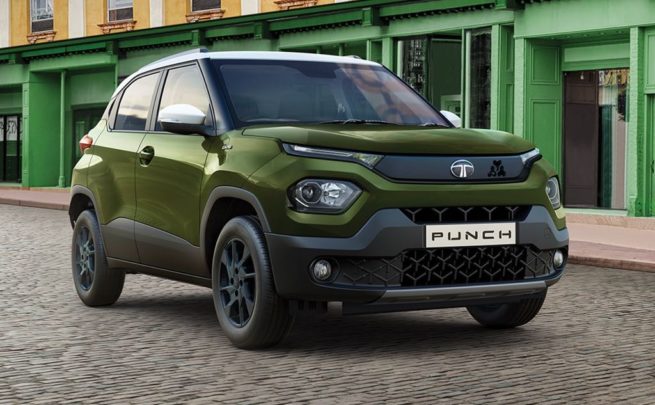Tata Punch crossed 2 lakh sales in 2024, Maruti Wagon R second highest seller
For the first time in four decades, Maruti Suzuki’s dominance as the manufacturer of India’s best-selling car has been broken. In 2024, Tata Motors’ sub-compact SUV, the Tata Punch, emerged as India’s highest-selling car, overtaking Maruti Suzuki’s Wagon R. Tata Motors recorded sales of over 2.02 lakh units of the Punch, surpassing the Wagon R’s 1.91 lakh units and marking a pivotal moment in the Indian automobile market.
This shift reflects a broader trend in consumer preferences, with SUVs dominating three out of the top five positions in the Indian market in 2024.
The Rise of Tata Punch
Since its launch in 2021, the Tata Punch has steadily gained traction among Indian buyers. Positioned as a sub-compact SUV with a bold design, 190 mm ground clearance and a commanding driving position, it has created a niche within the sub-4 metre SUV segment. This segment is increasingly becoming a preferred alternative for buyers transitioning from hatchbacks like the Maruti Swift.
Monthly sales of the Punch consistently crossed 10,000 units by 2022 and in 2024, it surged to become the best-selling car in India. Despite strong competition from Hyundai’s Exter, which shares a similar feature set and price point, the Punch outpaced its rival by delivering more than double the sales volume in 2024.
Shailesh Chandra, Managing Director of Tata Motors Passenger Vehicles and Tata Passenger Electric Mobility, attributed the success to the growing SUV segment and increasing demand for eco-friendly powertrains. He also highlighted the broader growth of the passenger vehicle (PV) market, which is expected to reach 4.3 million units in 2024.
Maruti Suzuki Faces New Challenges
Maruti Suzuki, a name synonymous with affordable cars in India, finds itself at a crossroads as the market pivots towards SUVs and premium vehicles. While the company maintained a 52% market share in 2018, its share dropped to 41% in 2024, reflecting the challenges it faces in adapting to evolving consumer preferences.
The lack of competitive offerings in the SUV segment, particularly in the premium range above Rs. 10 lakh, has significantly impacted Maruti Suzuki’s dominance. Once a powerhouse with the top five best-selling models under its banner, the company’s Wagon R fell behind in 2024, marking a historic shift in consumer sentiment.
A Look Back at India’s Best-Sellers
Historically, India’s automobile market has been dominated by specific models. Hindustan Motors’ Ambassador reigned supreme for nearly three decades post-independence, followed by Maruti Suzuki’s entry in 1985 with the Maruti 800, which revolutionised the market. The Alto succeeded the Maruti 800, holding the title of India’s best-selling car for 13 years and achieving record-breaking sales of 3.11 lakh units in 2011.
However, the market landscape has transformed in recent years. Stricter regulations, such as the transition to BS VI emission standards and mandatory safety features like airbags, have altered consumer preferences. The dominance of hatchbacks has waned, giving way to the SUV boom.
The Shift in Consumer Preferences
The Indian automotive market’s evolution underscores a significant shift in buyer behaviour. SUVs, once considered aspirational, are now mainstream, offering a blend of style, space and practicality. The top-five list for 2024 highlights this trend, with SUVs commanding a significant share of sales.
For Maruti Suzuki, the challenge lies in expanding its SUV portfolio and maintaining its legacy of affordability while meeting new consumer demands. Meanwhile, Tata Motors, buoyed by the Punch’s success, is poised to capitalise on the momentum and further strengthen its position in the market.
As India’s automotive industry reaches new heights with 42.86 lakh units sold in 2024, this landmark year signals a new era where innovation and adaptability will determine the leaders in an increasingly competitive market.

